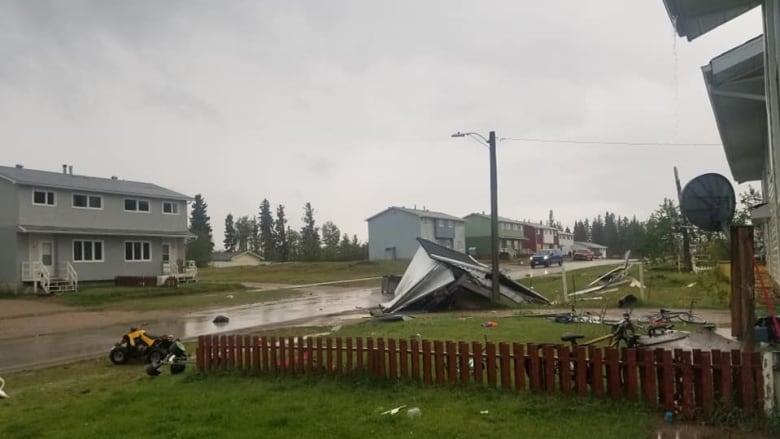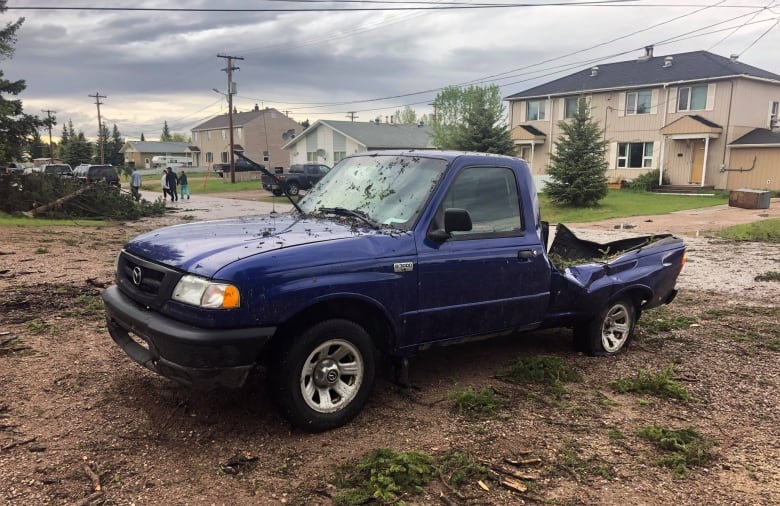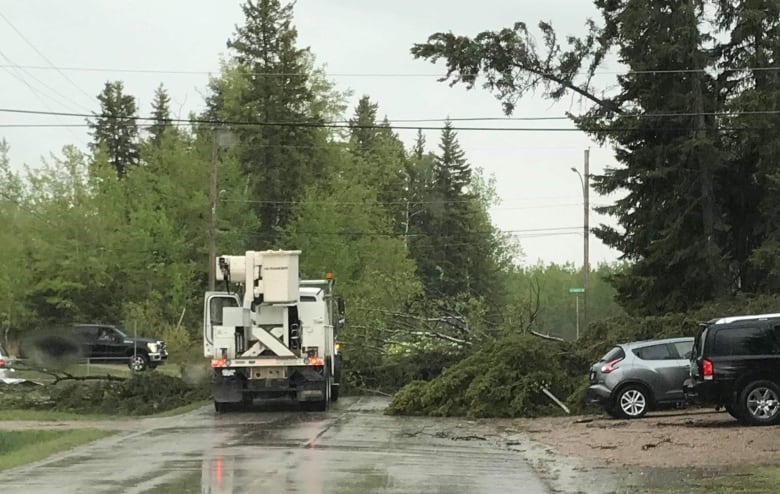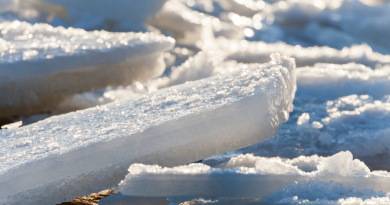Northern Canada: Tornado hit Northwest Territories community last Sunday

The powerful storm that damaged property in Fort Smith, N.W.T., last Sunday was indeed a tornado, Environment and Climate Change Canada has confirmed.
Kyle Fougère, a meteorologist with the federal department, said a tornado with estimated wind speeds between 135 and 175 kilometres per hour hit Fort Smith at around 4 p.m. and travelled about 1.5 kilometres.
“It was basically a direct hit,” said Fougère. “With the little, 1.5-kilometre path length, for that to occur in Fort Smith is very unlucky for them.”
He said it’s unclear how long exactly the tornado in Fort Smith was spinning.
Tornadoes in the territories are “quite rare,” Fougère said, adding that this is the fourth recorded tornado north of 60.
The last confirmed tornado hit the Yellowknife area in 2006.

The storm in Fort Smith took down trees and caused power outages. Residents in the community of about 2,000 posted pictures on social media of damaged vehicles and buildings.
Fougère said the damage is consistent with a tornado rating of one on the Enhanced Fujita scale.

The Enhanced Fujita scale scores tornadoes from one (weakest) to five (strongest) based on damage caused by strong winds, according to the federal Department of Environment and Natural Resources.
Fougère said Environment and Climate Change Canada confirmed the tornado in Fort Smith by gathering photos and videos and by working with Western University’s Northern Tornadoes project, which sent a wind engineer to the town.
Fort Smith experienced a landspout tornado, he said.
“It’s a little bit different than what people typically think of when they think of the big tornadoes that happen in the Canadian prairies and in the United States,” said Fougère.
Landspout tornadoes occur with rapidly developing thunderstorms, he said, and they tend to be weaker than the larger, supercell tornadoes.
While tornadoes in the North are uncommon, they likely touch down more often than recorded, said Fougère. There’s just no one around where they hit to report them.
Related stories from around the North:
Canada: Wet weather in Canada’s Northwest Territories helps free up firefighters for Alberta wildfires, CBC News
Finland: Weather warming up across Finland, Yle News
Sweden: Strong winds roar across central Sweden, Radio Sweden



